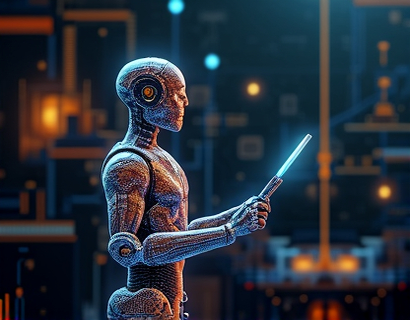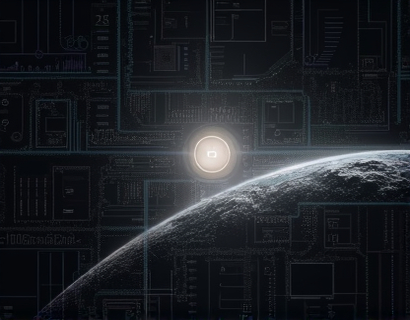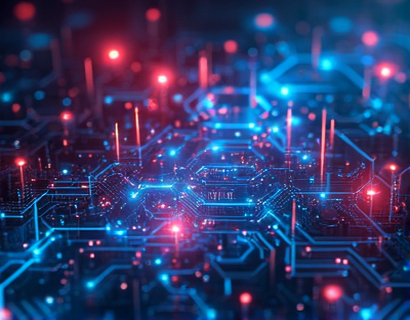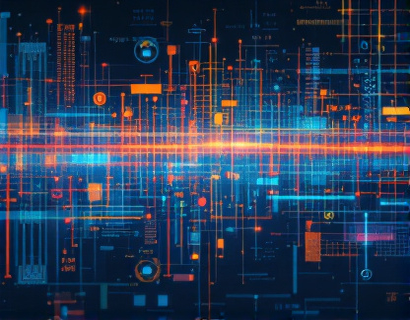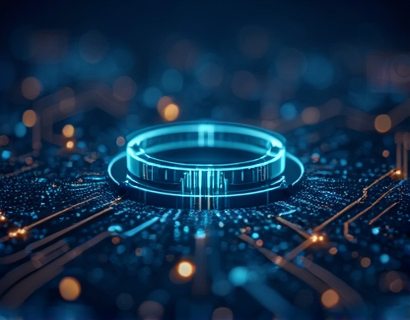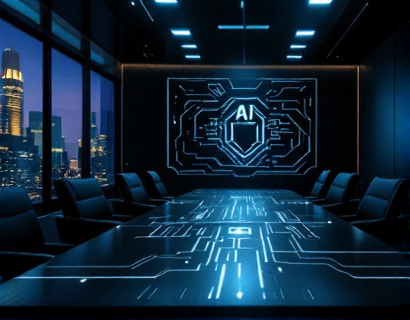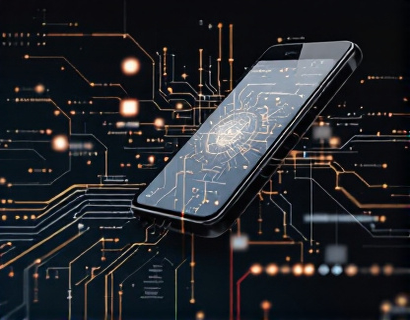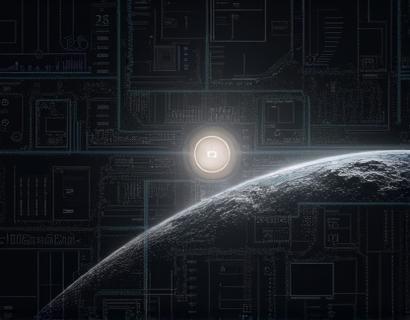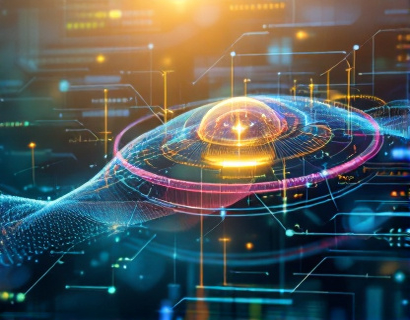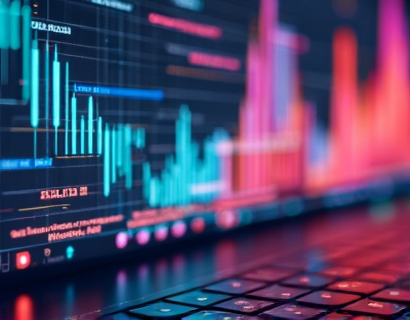Crypto and AI: Transforming App Ecosystems with Advanced Digital Solutions
The intersection of cryptocurrency and artificial intelligence (AI) is giving rise to a new era of digital innovation, fundamentally transforming app ecosystems. This fusion of technologies is not just enhancing existing applications but is also paving the way for entirely new categories of services and experiences. As we delve into this transformative space, it's essential to understand how these advanced digital solutions are reshaping the way we interact with technology, making processes more efficient, secure, and user-friendly.
The integration of AI into cryptocurrency has led to the development of smart contracts that are self-executing and automatically enforce the terms of an agreement without the need for intermediaries. These smart contracts are powered by blockchain technology, which ensures transparency, immutability, and security. The combination of AI and blockchain creates a robust framework for building decentralized applications (dApps) that offer enhanced functionality and trust.
One of the key areas where AI and crypto are making significant impacts is in the realm of security. Traditional app ecosystems often struggle with security breaches and data leaks, which can lead to significant financial and reputational damage. AI-driven security solutions can detect and mitigate threats in real-time, analyzing patterns and anomalies to prevent potential attacks. In the context of cryptocurrency, this means more secure wallets, exchanges, and transactions, providing users with greater peace of mind.
Another critical aspect is the optimization of user experiences. AI algorithms can analyze vast amounts of user data to personalize app functionalities, recommendations, and interfaces. For instance, a crypto-focused app can use AI to provide users with tailored news feeds, investment insights, and portfolio management tools based on their preferences and behavior. This level of personalization not only enhances user satisfaction but also increases engagement and retention.
The efficiency of app ecosystems is also being revolutionized through AI and crypto. AI can automate routine tasks, reduce manual errors, and streamline workflows. In the context of blockchain, AI can optimize network performance by predicting and managing congestion, ensuring faster transaction processing and lower fees. This is particularly beneficial for applications that require high throughput and low latency, such as decentralized finance (DeFi) platforms and non-fungible token (NFT) marketplaces.
Moreover, the use of AI in cryptography is leading to the development of more secure and private communication channels. Homomorphic encryption, a technique that allows computations on encrypted data without decrypting it first, is being enhanced by AI to create more efficient and secure data processing methods. This has profound implications for privacy-preserving applications, ensuring that sensitive information remains protected while still being usable.
The convergence of AI and crypto is also driving innovation in the area of identity verification and management. Traditional methods often rely on centralized databases, which are vulnerable to breaches and misuse. Blockchain-based identity solutions, powered by AI, offer a decentralized and secure way to manage digital identities. Users can control their personal data, granting access to applications and services as needed, without compromising privacy or security.
In the realm of gaming, the integration of AI and crypto is creating immersive and economically incentivized experiences. AI-driven non-playable characters (NPCs) and dynamic game environments enhance the realism and engagement of games. Additionally, blockchain and AI can facilitate fair and transparent loot boxes, in-game economies, and virtual asset ownership, reducing the risk of cheating and ensuring a level playing field for all users.
The healthcare sector is another area where AI and crypto are making significant strides. AI-powered diagnostic tools can analyze medical data from blockchain-based health records to provide more accurate and timely diagnoses. Smart contracts can automate the process of data sharing and consent management, ensuring that patient data is used ethically and securely. This not only improves healthcare outcomes but also enhances the efficiency of medical research and drug development.
In the financial industry, the combination of AI and crypto is giving birth to decentralized banking and financial services. AI-driven algorithms can assess creditworthiness and manage risk more effectively, reducing the need for traditional credit scoring methods. Blockchain-based platforms can facilitate cross-border transactions with lower fees and faster settlement times, democratizing access to financial services for underserved populations.
The retail sector is also experiencing a transformation through AI and crypto. AI-powered chatbots and virtual assistants provide 24/7 customer support, handling inquiries and transactions seamlessly. Cryptocurrency payments offer a faster and more secure alternative to traditional payment methods, reducing transaction costs and increasing convenience for both businesses and consumers. Inventory management and supply chain optimization are further enhanced by AI, ensuring that products are available when and where they are needed.
In the education sector, AI and crypto are enabling personalized learning experiences and secure credentialing. AI-driven platforms can adapt to individual learning styles and paces, providing customized content and feedback. Blockchain-based digital certificates and diplomas ensure the authenticity and portability of educational credentials, making it easier for learners to prove their qualifications to employers and institutions worldwide.
The environmental impact of technology is another area where AI and crypto can make a difference. AI can optimize energy consumption in data centers, reducing the carbon footprint of blockchain networks. Cryptocurrency mining, traditionally energy-intensive, is being transformed by AI-driven solutions that find more efficient ways to validate transactions and maintain the integrity of the blockchain. This not only makes these technologies more sustainable but also more viable for widespread adoption.
As the integration of AI and crypto continues to evolve, the potential for innovation is vast. The development of AI-powered oracles, which bridge the gap between blockchain and external data sources, is crucial for the functioning of complex dApps. These oracles ensure that smart contracts have access to real-time data, enabling more sophisticated and reliable applications. The future may see the emergence of AI-driven blockchain platforms that automatically adapt to changing conditions, optimizing performance and security on the fly.
In conclusion, the fusion of cryptocurrency and artificial intelligence is revolutionizing app ecosystems, offering unprecedented levels of efficiency, security, and personalization. As these technologies continue to advance, we can expect to see even more innovative applications that enhance connectivity, foster trust, and drive digital transformation across various industries. For tech enthusiasts and professionals, this is an exciting time to explore the possibilities and contribute to the shaping of the future digital landscape.



